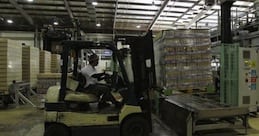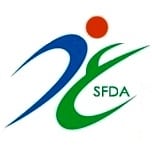 Dubai: Owners of food businesses in Dubai are calling for unified labelling and listing standard for food products to allow fair competition.
Dubai: Owners of food businesses in Dubai are calling for unified labelling and listing standard for food products to allow fair competition.
Saleh Lootah, Chairman of Food and Beverage Business Group in Dubai, said: “Since there are different standards for food products across the emirates, unfortunately we are lacking the best practices for this business sector.’
He spoke during Dubai the Chamber roundtable focus on food and beverage sectors.
“It should not be surprising that regulation can produce harmful effects when it is poorly designed or executed.”
Having a unified standard is a major concern in food industries, where there are different regulatory controls on quality standards, specification and other requirements, he added.
“We need to understand the effects of the actions of the regulations on the performance of food trade as well as food processing and manufacturing industry overall.”
“And our role is to call seriously upon government to craft regulatory reforms that produce better outcomes which are economically desirable.”
Main issues
Lootah stressed the importance of forming an industry sub group to tackle the main issues as well as encourage and support stable businesses and the overall growth of the sector.
Price increase, high cost of food manufacturing, lacking of proper finance is another issues that most of the businesses in this industry are facing.
However, the Director General of Dubai Chamber of Commerce and Industry, Hamad Bu Amim, noted that it is unrealistic to think of the possibility of reducing the cost of food manufacturing in Dubai.
“Business owners should realise that the cost of their businesses is not really expensive compared to other benefits and facilities they enjoy in Dubai in terms of infrastructure, ports, airports and other services.”
He said the food and beverage industry is very important to growth and development.
Bu Amim said that according to research by Business Monitor International, a research centre, the value of food consumption in the UAE was expected to have reached Dh28.2 billion in 2012. It is expected to reach Dh32.6 billion in 2013.
Moreover, he said that the annual growth of food consumption per capita is expected to be 12 per cent for 2013 compared to 2012.
Price cap
Lootah is concerned that stringent enforcement of food price cap regulations will result in fewer products on the market and less investment as price caps is an unrealistic and unhealthy measure in a free trade market such as the UAE.
On the other hand Bu Amim added: “Despite the fact that we agree on subsidising the basic food commodity in the country however, this can be implemented on all market products in the long run.”
He explained that it is very difficult to control prices of commodities in a country where 85 per cent of its food supply depends on import.
“Food prices are always dependent on supply and demand, oil price, service cost, logistic cost and the prices of world markets.”
Bu Amim said to preserve the quality of food products and provide a steady supply and the best service, there should be no restrictions on businesses.
Lootah suggested a roadmap and plan to boost the food industry in Dubai by mixing multi national knowledge with local talent in the sector and forward planning with special initiatives. He also mentioned improving communication among businesses, signing MoU with associating stakeholders and participating in trade fairs. He said all these steps will encourage local companies to apply for awards and improve the perception of the UAE’s food and beverage manufacturing industry.
By Zaher Bitar Senior Reporter – Gulf News



